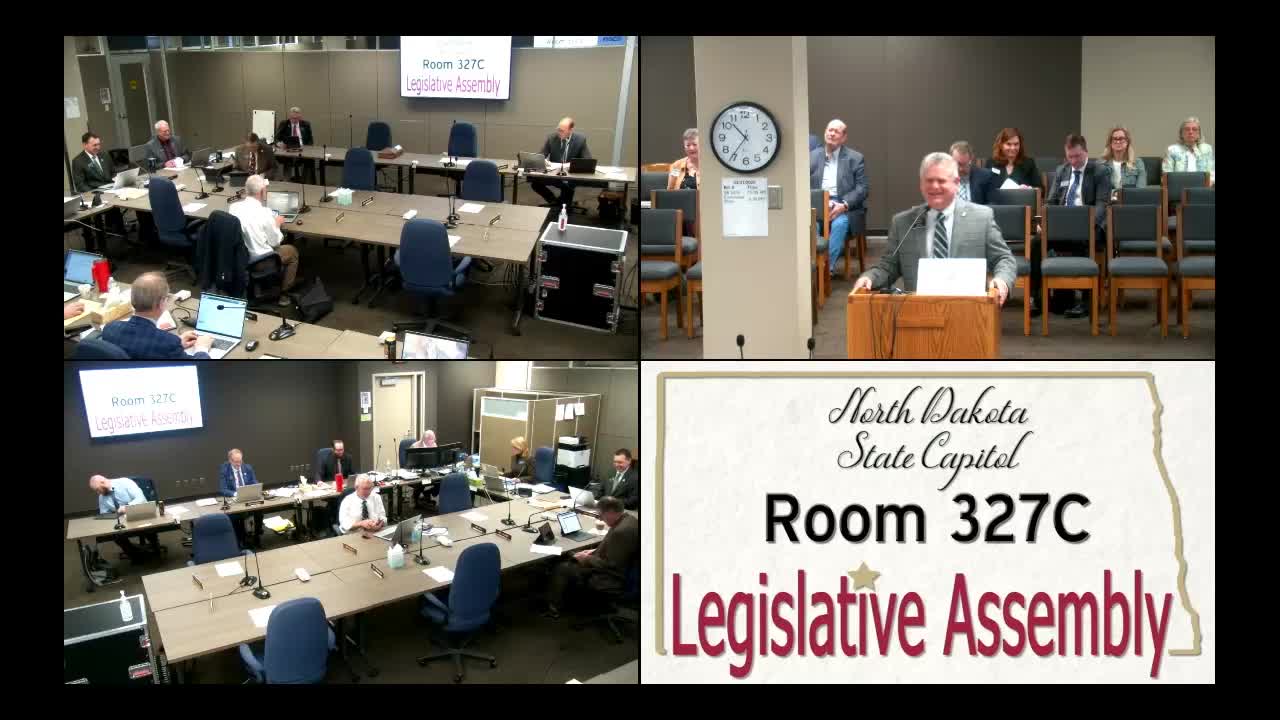House committee advances bill requiring radon disclosure at residential sale
Get AI-powered insights, summaries, and transcripts
Subscribe
Summary
The House Industry and Business and Labor Committee voted to give Senate Bill 2204 a “do pass” recommendation after testimony from medical experts, realtors and public-health advocates about radon risks and how disclosure would work at point of sale.
The House Industry and Business and Labor Committee voted to recommend passage of Senate Bill 2204 on a voice and roll-call vote Wednesday after a hearing that focused on requiring sellers to disclose known radon test results when transferring residential property.
Senator Jeff Barta, who carried the bill to the committee, told lawmakers the proposal does not mandate testing or mitigation and is intended only to increase buyer awareness. “This is not a mandate to perform testing or to perform any mitigation,” Barta said as he introduced the bill. He said the measure would require sellers to disclose test results they have in their possession or that are reasonably available to them.
That limitation—requiring only disclosure of results a seller knows about or can reasonably produce—was a point repeatedly clarified in testimony. Jill Beck, chief executive officer of the North Dakota Association of Realtors, said the measure will be folded into the state’s existing property-condition disclosure process. “We currently have environmental concerns of which radon is included in our seller’s property disclosure form,” Beck said, and added that the association supports a “due pass” so the language can be integrated into the standard disclosure forms used in transfers.
Physicians and public-health researchers urged the committee to advance the bill as a public- awareness step. Stephanie Dahl, a physician and president of the North Dakota Medical Association, described personal and clinical concerns about radon exposure and said the state’s average residential levels are well above recommended thresholds. “Radon is the second leading cause of lung cancer deaths in The US and it kills more people than home fires,” Dahl testified, urging lawmakers to use the point of sale as an opportunity to inform buyers. Gary Schwartz, professor and chair of the Department of Population Health at UND School of Medicine, told the committee North Dakota records some of the nation’s highest residential radon levels and that the only reliable way to know a home’s level is to test it.
Testimony addressed practical questions about enforcement and consequences. Committee members asked whether private sellers would face penalties for failing to disclose; witnesses and proponents said the bill requires only written disclosure of what the seller knows and includes language protecting a seller or seller’s agent from civil liability for the mere presence of radon. Shane Gettle of the American Cancer Society Cancer Action Network highlighted that protection and the bill’s limited scope: it “only requires that a seller disclose in writing what they know,” he said, adding the statutory language also directs sellers to provide test results that are reasonably available.
Witnesses described testing and mitigation options and costs. Dahl said the state offers low-cost test kits (test kits through the Department of Environmental Quality were described in testimony as available for about $25) and that inexpensive electronic monitors give quick results; she said an active mitigation system typically costs around $1,300 and can reduce indoor levels substantially. Realtors and others said point-of-sale disclosure is a commonly used public- awareness tool in other states and that the North Dakota Real Estate Commission and title companies help ensure sellers complete disclosure forms.
After public testimony from medical experts, the North Dakota Association of Realtors and public-health advocates, Representative Ruby moved a “do pass” recommendation; Representative Schatz seconded. The committee then recorded a roll-call vote and approved the motion by unanimous recorded “yes” votes. The committee chair indicated a floor sponsor would be designated to carry the bill to the full House.
The bill’s language excludes commercial property at the request of the real-estate industry; proponents said that decision reflects differences in how commercial transfers are handled and the scale of testing such properties would require. Committee members noted the bill is intended as an awareness and disclosure measure, not a mandate to test or remediate, and discussed follow-up possibilities such as physician outreach and broader public-education campaigns.
The committee hearing record includes testimony from medical researchers and associations, the real-estate industry and cancer-advocacy groups; all urged that disclosure would prompt more homeowners to test and, where necessary, mitigate. The committee sent SB 2204 forward with a recommendation to pass.
Votes at a glance: Motion — “move due pass” on Senate Bill 2204; mover: Representative Ruby; second: Representative Schatz; outcome: approved (unanimous recorded “yes” votes).
